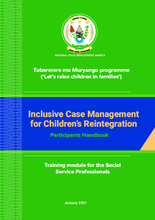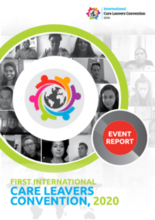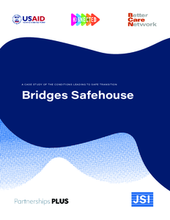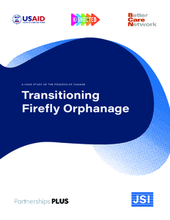Displaying 171 - 180 of 949
This participant’s handbook relates to Module 3 of the Government of Rwanda’s Tubarerere Mu Muryango (TMM) training programme. It is for Child Protection and Welfare Officers who work directly with children and families on reintegration of children, including children with disabilities from residential institutions.
This report documents activities and conversations from the International Care Leavers Convention 2020, held virtually in November 2020.
The article analyzes the results of a sociological study of the prospects for improving the system of social protection of graduates of institutional institutions in Uzbekistan.
This case study highlights some of the prerequisites for the starting point of a successful transition from residential care to a non-residential model, many of which are often overlooked or underestimated. The case study is organized around the various stages of transition and explores some of the key themes outlined in the Transitioning Models of Care Assessment Tool.
This study examines whether former foster youth are more likely to stop out of a 4-year university than low-income, first-generation students who did not experience out-of-home care.
This operational guidance describes how the Government of Rwanda conducts case management for reintegration of children from residential institutions to family-based care, including children with disabilities.
This report shares the findings of a focused piece of research carried out in Scotland by CELCIS and partners at the University of Edinburgh. The aim of the research was to understand care leavers' experiences of digital exclusion before and during the COVID-19 restrictions in Scotland in 2020.
This policy brief has been developed to serve as a guidance to policy makers while developing any policy on leaving care.
Based on groundbreaking original research, this book provides a comprehensive account of the issues surrounding pregnancy and parenthood for young people in and leaving care.
This case study highlights some of the key dynamics that arose throughout one organization's process of transitioning their services from residential care to non-institutional programming and examines how those dynamics both influenced the transition and determined the type of support provided, as well as the most appropriate transition strategy. The case study is organized around the various stages of transition and explores some of the key themes outlined in the Transitioning Models of Care Assessment Tool.








